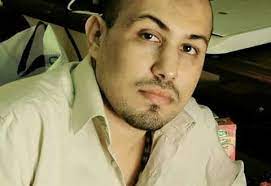On the third of August this year, I had the honour of presenting the special screening of the global documentary film “Memories of Massacre,” which was shown in one of Britain’s most essential and prominent venues, the British Academy of Film and Television Arts (BAFTA).
Ten years ago, I was there in Rabaa and began my opening speech by recalling those problematic hours. I have never forgotten the tragic events that took place in Rabaa. During the screening of this film, all I saw before me was the thick smoke and the army and police armoured vehicles that carried out the Rabaa massacre ten years ago. “The sit-in dispersal is carried out by order of the public prosecutor.” I could never forget the terrifying sound of police armoured vehicles’ sirens participating in the sit-in dispersal and the haunting repetition of that detestable phrase. Many sleepless nights have passed, and I wake up in fear, still hearing those sirens in my ears, even after ten years.
As an eyewitness to the massacre that occurred that day, I can testify to the magnitude of horror and destruction inflicted upon the peaceful protesters who gathered in Rabaa to demand the return of democracy and reject the military coup. But their demands were met with violent repression from the state, and on that day, the army and police killed nearly a thousand people in less than ten hours, according to a report by Human Rights Watch in August 2014.
“Memories of Massacre” was the name of the film that took an hour and a few minutes to recount the memories of the revolution, the fall of Mubarak, the presidential elections, President Mohamed Morsi’s victory, and ultimately the military coup and the Rabaa Al-Adawiya massacre.
The audience of all ages interacted with the testimonies presented in the film with professionalism and objectivity. I saw young children crying during the screening, and one of them, not older than ten years old, asked me in astonishment, “Did you experience this massacre?” before bursting into tears.
When you see former US National Security Advisor for President Barack Obama, Ben Rhodes, recounting the scenes at the White House after the military coup and the Rabaa Al-Adawiya massacre, when you hear Craig Summers, the Chief Security Officer at Sky News, commenting on the killing of his colleague, Michael Dean, and when you listen to David Kirkpatrick, the then Cairo Bureau Chief of The New York Times, all providing credible testimonies, you can’t help but laugh at the baseless accusations and smear campaign launched by the Egyptian media, represented by Ahmed Moussa and orchestrated against the film “Memories of Massacre.”
The media campaign waged by Egyptian and Arab media against the filmmakers and the organizers of the private screening is new evidence of Sisi’s regime’s fear of reviving the memory of the massacre. Their intense fear stems from the fact that, for the first time, Rabaa has become an international issue addressed to a different audience in a foreign language. The guests in the film, as well as the filmmakers themselves, are primarily non-Egyptians, and even most speakers at the subsequent seminar were not from Egypt, which greatly troubled the Egyptian regime.
Sisi, his regime, their media, and their embassy in London attempted to prevent the screening of the global documentary film “Memories of Massacre” by all means possible. They launched a media campaign in Egypt, spread provocative posts on social media, tried to gather demonstrators in front of the film’s private screening venue, and reached out to all parties to cancel the event. However, their desperate attempts failed at every step.
Their media campaign turned out to be the best promotion for the film. Their provocative posts stirred people from all over Britain and beyond to attend the screening. They have yet to respond to their call for a demonstration in front of the film’s venue, and the event was a resounding success, witnessed by all the attendees.
The lesson learned from the past few days makes it beyond doubt that Rabaa is a massacre that haunts Abdel Fattah el-Sisi and his men, just as we, its victims, see it in our nightmares. The cries of the wounded who were ordered to be killed inside the field hospital haunt them, as do the screams of the children whose fathers were called to be shot. Every time someone speaks of it, it worries and terrifies them. Everyone knows that Rabaa is not just memories presented in a documentary film, but an absent justice seeking to hold its perpetrators accountable, with Sisi at the forefront.





Recent Comments